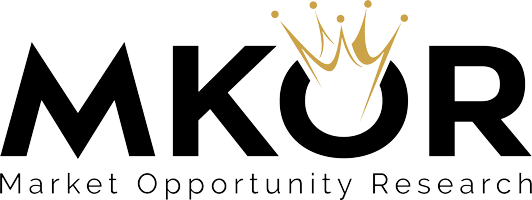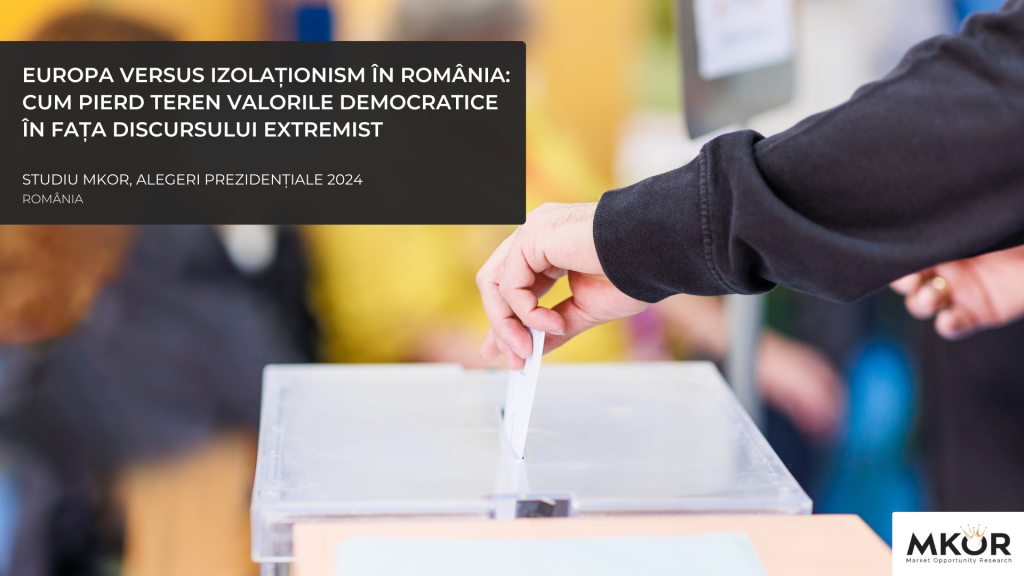68% of Romanians Are Pessimistic About the Country’s Future
Romania is undergoing one of the most challenging periods from both a political and social perspective.
Pessimism is on the rise, isolationist discourses are gaining ground, and trust in democratic values is declining, according to the latest independent market research study conducted by MKOR.
The survey was carried out between December 4–7, 2024, on a nationally representative sample of 1,100 respondents, offering a clear picture of the polarization and uncertainty dominating Romania’s social landscape.
Top Concerns for Romanians: Corruption and Fear of War
- Corruption remains the main source of concern for 60% of respondents, surpassing inflation and taxes.
- Fear of war has increased by 10% since the beginning of the year, reaching 29%, fueled by nationalist rhetoric and the discourse of certain political candidates.
- Only 18% of Romanians believe their family’s financial situation has improved compared to last year, a figure that reflects widespread pessimism.
Against the backdrop of economic and social instability, corruption and fear of war emerge as the two dominant issues for Romanians, according to MKOR’s latest study.
At the same time, Romanians display a declining sense of trust, affecting not only confidence in institutions but also expectations regarding national security and the country’s economic trajectory.
Content

Corruption: The Main Obstacle to the Country’s Progress
With 60% of respondents identifying corruption as Romania’s principal problem, it has overtaken inflation and taxes, which were major concerns in previous years. The perception that the system is flawed and that public resources are poorly managed continues to erode citizens’ trust in government and in other key institutions, such as the judiciary or public administration.
This concern is closely tied to the absence of visible progress in combating corruption at a systemic level. Anti-corruption campaigns, perceived as largely symbolic, and high-profile cases that end without real consequences amplify citizens’ sense of powerlessness. Without concrete measures, corruption becomes not only a practical issue but also a symbol of state dysfunction.
Fear of War: A Growing Sentiment
Another alarming trend is the increase in concerns related to the possibility of war, rising from 19% at the beginning of 2024 to 29% in December. Nationalist rhetoric and extremist discourses, increasingly present in the public sphere, further fuel this sentiment. Geopolitical factors, such as regional tensions and the war in Ukraine, heighten uncertainty and fears about stability in the region.
This phenomenon is especially pronounced among vulnerable groups, such as individuals with low incomes or those living in rural areas, who perceive a greater risk to their economic and physical security. Additionally, the lack of trust in the state’s ability to manage crises adds to the general sense of anxiety.
The Relationship Between Corruption and Fear of War
There is a strong interdependence between these two issues. Systemic corruption reinforces negative perceptions of institutions’ capacity to protect citizens, while fear of war deepens the feeling of insecurity and mistrust in the state. This vicious circle profoundly impacts social cohesion and drives a significant part of the population to seek radical solutions or to support candidates with extremist discourses.
What Do the Data Say About Priorities and Solutions?
While economic concerns such as inflation and taxation remain relevant, they are increasingly seen as part of “everyday normality.” In contrast, corruption and fear of war are perceived as existential threats requiring urgent, systemic solutions. To address these challenges, authorities must adopt transparent and efficient measures, communicate progress clearly, and rebuild trust in public institutions.
In the long run, fighting corruption and strengthening national security must become strategic priorities, not just themes for electoral campaigns. Only in this way can Romania overcome generalized pessimism and social polarization, regaining citizens’ trust in democratic values and in its European future.

Călin Georgescu vs. Elena Lasconi: Voter Profiles
The study highlights significant differences between the electorates of the two presidential candidates.
Călin Georgescu’s Voters:
- Vulnerable segment: Individuals with low levels of education, low incomes (under 3,000 RON), primarily from smaller towns in the South, South-East, and North-East regions.
- Economic inactivity: Pensioners, unemployed individuals, or those on social aid, with low trust in institutions and minimal civic involvement.
- Trust in the Church: The only institution widely perceived as trustworthy, alongside traditional values promoted by Georgescu.
Elena Lasconi’s Voters:
- European orientation: Educated voters, with higher incomes, mostly from urban areas.
- Democratic openness: They value transparency, competence, and European values, rejecting extremist discourse.
Călin Georgescu’s Voters: Profile and Motivations
The study provides an in-depth perspective on the main motivations of Georgescu’s electorate, underlining their specific alignment with conservative values and their aspiration for a profound reset of the political system.
Change and Reset of the Political System
The most frequent motivation behind Georgescu’s support is the desire for change and resetting the political system, mentioned by 77% of his voters. This trend reflects growing frustration with the current political class and an appetite for radical reform.
Georgescu’s electorate perceives him as an outsider—someone outside the system, untied to political parties, who can bring a fresh approach to politics and restore trust.
Patriotism and Sovereignty
82% of Georgescu’s supporters cite patriotism, sovereignty, and national independence as decisive factors in their choice.
This emphasizes voters’ attraction to nationalist discourses that promote isolationism and the defense of national values from external influences, consolidating the perception that Romania must redefine its position both socially and politically on its own terms.
Independence from Traditional Parties
A notable 84% of Georgescu’s voters identify independence from traditional parties as a key similarity motivating their support.
This concern stems from the search for a candidate capable of countering political polarization and restoring integrity, seen as alternatives to an apparently compromised and corrupt system.
Experience and Credibility
51% of voters justify their support through Georgescu’s perceived experience and competence, presenting him as an alternative leader capable of making decisive reforms and managing crises.

Elena Lasconi’s Voters: Democratic Openness and European Values
Elena Lasconi’s electorate is defined by its support for a distinct set of values, guided by a pro-democratic, transparent, and stability-oriented perspective.
Pro-European and Democratic Orientation
An exclusive motivation for Lasconi’s voters is their pro-European and democratic orientation, mentioned by 100% of her supporters.
These voters endorse European values, transparency, and the rule of law, rejecting nationalist and sovereigntist rhetoric. This attitude is specific to a more educated, urban electorate, oriented towards Romania’s integration within Western structures.
Stability and Security
90% of Lasconi’s voters see her as a solution for ensuring stability and security, values essential to an electorate that favors predictable policies and competence.
Her central message of consistency and professionalism resonates strongly among higher socio-economic segments.
Vote Against the Opponent
A significant 89% of Lasconi’s voters state that their choice was motivated by opposition to her rival candidate, perceiving her as the “lesser evil.”
This highlights both the electorate’s deep polarization and the importance of countering isolationist messages.
Equality and Representation
For a smaller but meaningful segment, the election of a woman president represents a powerful argument.
100% of respondents who mentioned equality and representation as their main motivation are Lasconi supporters, indicating a clear preference for diversity and inclusion in politics.
Comparing Motivations: Two Camps, Two Visions
The two electorates reflect a profound ideological fracture within Romanian society:
- Călin Georgescu’s voters come from vulnerable segments, oriented towards traditional values, seeking radical change, and rejecting external influence.
- Elena Lasconi’s voters, in contrast, represent a progressive, educated electorate, oriented toward democracy and European cooperation, rejecting extremism.
These differences underline Romania’s growing polarization and the pressing need for social cohesion, in order to rebuild citizens’ trust in democratic institutions and values.

Pessimism and Declining Trust in Institutions
- 68% of Romanians are pessimistic, an increase of 10% compared to mid-2024.
- Low trust levels in Parliament, Government, and political parties, despite a slight improvement in Parliament’s credibility compared to last year.
- Isolationist rhetoric and the annulment of the first round of presidential elections have amplified social tensions and divisions.
Public pessimism continues to rise, reaching an alarming 68% by the end of 2024.
This growth reflects economic uncertainty, political instability, and a lack of credible solutions offered by political leaders. The turbulent context of the annulled presidential elections, combined with isolationist discourse in the public sphere, has further fueled distrust in the political system and its institutions.
Political Institutions at Record-Low Levels of Trust
Romanians report minimal trust in the state’s core institutions, including Parliament, Government, and political parties.
While Parliament recorded a slight increase in credibility, this was not sufficient to offset the accumulated deficit of trust. Government and political parties remain at the bottom, perceived as inefficient, corrupt, and disconnected from citizens’ needs.
Social Divisions Amplified by Isolationist Rhetoric
In an electoral context marked by unprecedented tensions and the annulment of the first round of presidential elections, social divisions were deepened by nationalist and sovereigntist discourse.
Messages promoting isolation from the European Union and redefining national identity have polarized the electorate, creating a rift between progressive voters and those adopting a traditionalist or conservative outlook.
This rhetoric reinforces distrust in democratic institutions, amplifying a generalized crisis of confidence in almost all dimensions of state authority: political, legal, and administrative.
Impact of Election Annulment and Public Perception
The annulment of the first round of presidential elections was an unprecedented event, with a profound impact on public trust.
Many citizens perceive the decision as a manifestation of political instability and a lack of respect for democratic values. In this context, political parties and leaders are increasingly seen as incapable of managing crises, fueling a widespread sense of insecurity and pessimism.
Long-Term Consequences
This distrust of institutions and reluctance towards the political class carry significant long-term risks. Without coherent public policies and a genuine reconnection between citizens and institutions, these trends could undermine Romania’s democratic stability.
Moreover, social polarization and internal tensions could make Romania more vulnerable to external influence and less capable of meeting economic and social objectives.
Addressing these challenges requires urgent measures: institutional reforms, promotion of transparency, and more effective communication with citizens.
Only by restoring public trust and reaffirming democratic values can Romania overcome this critical moment.
Isolationism on the Rise and Its Economic Roots
- Lack of information: Only 20% of Romanians are aware of the economic benefits of EU membership, such as:
- Average wage growth to 1,050 EUR, comparable to Hungary and Greece.
- Access to over 40 billion EUR in European funds for infrastructure and education.
- A doubling of purchasing power in real terms, adjusted for inflation.
- Normalization of economic problems: Although inflation and taxes remain major concerns, they are increasingly perceived as part of “everyday normality.”
MKOR’s study reveals an alarming trend: isolationism—also known as sovereigntism—is gaining more ground in Romania than ever before, fueled by political instability, widespread pessimism, and populist discourse.
This phenomenon has a clear economic root, as citizens’ lack of awareness of EU-driven progress erodes support for democratic values and strengthens extremist rhetoric.
Sovereigntism and the Rejection of European Values
The rise of isolationism is reflected in the rhetoric of certain political candidates and in voters’ preferences.
Supporters of extremist discourses perceive the European Union and international relations as threats to national sovereignty, viewing Romania’s problems as requiring “autonomous” solutions rather than European ones.
This orientation is also fueled by a low level of awareness of the benefits of EU membership. Only 1 in 5 Romanians are aware that Romania has benefited from over 40 billion EUR in European funds, which have significantly contributed to infrastructure, education, and health.
Among more vulnerable voter segments, the lack of information about economic progress reinforces their rejection of democratic and European values.
Economic Drift and Its Impact on Society
From an economic perspective, only 18% of Romanians believe their family’s financial situation has improved compared to last year—a figure that reflects a deep-seated pessimism.
While inflation is perceived as less alarming than in previous years, most Romanians continue to face major financial difficulties, such as:
- Lack of resources: The majority report struggling to cover basic expenses, with incomes insufficient for a significant improvement in living standards.
- Economic polarization: Higher-income, urban populations experience marginal benefits, while rural and lower-income groups face more severe economic pressures.
- Tax and fiscal burden: Taxes are perceived as increasingly oppressive, with many families citing the weight of general financial obligations.
This context contributes to the consolidation of isolationist discourses, which promise a “reclaiming of control” through national solutions and reduced dependence on external influence.
At the same time, these pressures risk undermining Romania’s progress achieved over the last two decades.
How Does Economic Drift Fuel Sovereigntism?
Economic hardships drive many Romanians to seek radical solutions, often in the form of candidates or parties promoting isolationist narratives.
Such discourses criticize international partnerships and question Romania’s European membership, claiming that alignment with the European Union primarily benefits elites, while most vulnerable segments of society are left behind.
MKOR’s study reveals that voter categories most prone to sovereigntist narratives are individuals with low education levels, minimal income, and residents of rural areas, who are most exposed to economic pressures.
Furthermore, the lack of awareness of the tangible benefits brought by European integration amplifies citizens’ rejection of democratic institutions, strengthening support for extremist solutions.
Cori Cimpoca, Founder of MKOR, Highlights the Risks
The growing support for candidates with isolationist and extremist rhetoric appears to be closely tied to the lack of trust in institutions.
When democratic values are called into question and governance is viewed with suspicion, voters—especially the most vulnerable—can be easily drawn to radical messages.
In the long term, this direction could undermine Romania’s development, both domestically and in its relationship with the European Union.
Cori Cimpoca – MKOR Founder
Long-Term Effects of Isolationism and Economic Drift
If this trend continues, Romania risks facing a decline in public support for democratic values and a weakening of its position within the European Union. Over time, this could lead to:
- Reduced access to European funds needed for infrastructure, education, and healthcare.
- Loss of foreign investment, which significantly contributes to job creation and economic development.
- Weakened social cohesion, as polarization between supporters of democratic values and backers of isolationist discourse intensifies.
Solutions to Counter Isolationism and Economic Drift
To address these challenges, coordinated measures are essential from authorities, civil society, and the business environment:
- Raising public awareness: Clear and accessible communication about the benefits of EU membership can counterbalance isolationist narratives.
- Addressing economic inequality: Investments in poorer regions and support for local entrepreneurship can help reduce economic polarization.
- Restoring trust in institutions: Transparency, anti-corruption measures, and efficient reforms are crucial to rebuilding public confidence.
Romania stands at a turning point. Its economic and democratic future depends on its ability to navigate current challenges and to foster an inclusive and open vision for society.
Advanced Methodology for Data Collection and Analysis
The data presented in this study were extracted from an open-ended question, strategically designed to capture the essence of respondents’ opinions regarding the motivations influencing their voting choices.
By leveraging agile research capabilities and integrating artificial intelligence technologies developed by MKOR, we successfully collected and rapidly processed complex qualitative responses.
These responses were transformed into quantifiable insights, easy to interpret and apply in decision-making strategies.
How MKOR Technology Works
MKOR applies an advanced methodology based on natural language processing (NLP) algorithms and machine learning techniques, which provide greater depth in the analysis of open responses. This innovative approach enables our team to:
- Identify essential patterns in respondents’ answers, such as aspirations for transparency, support for stability, or the desire to reset the political system.
- Classify motivations with precision and speed, segmenting voters by their values and priorities.
- Generate relevant visualizations, highlighting the major differences between voter groups and illustrating the key dimensions of electoral choices.
This combination of technology and human expertise not only accelerates the research process but also offers a clear and nuanced understanding of complex phenomena, such as social polarization and shifting perceptions of democratic values.
The Advantages of Agile, AI-Powered Research
This advanced technology allowed us to extract relevant results in a short timeframe, while maintaining a high standard of accuracy and representativeness.
Our agile research process is optimized to capture the subtle nuances of public perception, a critical element for interpreting social and political trends.
In addition, the use of artificial intelligence reduces the risks associated with human error and increases the consistency of the analysis.
The Added Value of MKOR Insights
Transforming open responses into actionable insights represents a crucial advantage of our methodology. The insights generated not only facilitate understanding of voter motivations but also provide a solid foundation for communication strategies and decision-making. These insights help to:
- Decode electoral dynamics, by identifying differences across voter segments.
- Adapt messages to the electorate, ensuring better alignment with the values and needs of each category.
- Support informed strategic decisions, grounded in a deep understanding of public motivations.
MKOR’s methodology not only offers a clear view of the current context, but also opens opportunities for optimizing dialogue with diverse social segments. In times of volatility, these instruments are essential for understanding complex realities and for creating adapted solutions.
Study Methodology
- Period: December 4–7, 2024
- Sample: 1,100 respondents, nationally representative (margin of error ±3%, confidence level 95%)
- Data collection method: CAWI, using the MKOR Panel
Who We Are
MKOR is an independent, innovative, and agile research agency. We strongly believe that data collected directly from the market—about consumers and their perceptions of brands—provides a clearer picture of both opportunities and challenges for the companies we work with. Agility and empathy in business are our superpowers.
Together, we can design a tailored study that meets the specific needs of your company. Our latest service, developed especially for companies that need quick, data-driven insights, delivers market data within a week and at a highly accessible budget: Agile Research.
This flexible and fast research service allows companies to gain valuable consumer insights in a short timeframe and at reduced costs.
Through the Agile Research survey, you can address 5–7 questions to a representative national sample. These data help you make informed decisions and develop effective business strategies.
If you want to learn more about how Agile Research can support your company, we recommend reading the article “How to Grow Black Friday Sales (or Any Other Campaign) with Agile Research”.
Have you read everything? Comment / join our newsletter / read our other research posts!
Urban Millennial Moms Are the Face of the Ethical Consumer Profile in Romania
April 19, 2024
0 Comments16 Minutes
Fashion ROute 2022: data extracted from the first real-time Romanian fashion retail study
August 12, 2022
0 Comments10 Minutes
How it went at the IQ Digital launch: the initiative supporting Romanian SMEs for free
January 24, 2026
0 Comments6 Minutes








